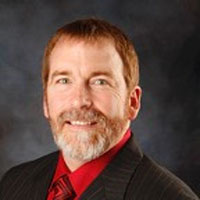Knee pain caused by arthritis can become so severe that the pain limits daily activities. When this occurs, a knee replacement may be recommended by a doctor. Patients who want to postpone knee replacement surgery now have a knee repair alternative, stem cell therapy for knees. OPTIMAL Pain & Regenerative Medicine® offers a safe and effective stem cell alternative to knee replacement for patients living in the Dallas, Arlington and Fort Worth, Texas area.
Anatomy of the Knee
The knee is the largest joint in the body, composed of three main bones and a sophisticated network of muscles and ligaments. The three bones include the femur (thighbone), patella (kneecap) and tibia (shinbone). Each bone is covered by a firm, rubbery substance called cartilage that helps the knee joint bend and straighten smoothly and pain-free. Two menisci, located between the shinbone and the thighbone, act as shock absorbers when the knee joint is put under stress.
How is Stem Cell Therapy for Knees Used as a Knee Repair?
When arthritis affects a knee, a patient may experience chronic knee pain, swelling and inflammation caused by the deterioration of cartilage. The deterioration leads to bone rubbing against bone. When traditional knee repair options, such as weight loss and physical therapy, do not alleviate the pain, some doctors may recommend a knee replacement. A knee replacement surgery is not always a viable option for all patients. Some patients may want to postpone or delay surgery for as long as possible. For these patients, autologous stem cell therapy for knees can be performed at OPTIMAL Pain & Regenerative Medicine® as a stem cell alternative to knee replacement.
Patient Story
Brain Gilley’s Knee Replacement Alternative
Brian Gilley was no stranger to knee pain. “I was told that the damage in my knee was so severe that I was going to need a knee replacement in my left knee. At that point, I thought a knee replacement was going to be my only option,” Brian said. Learn how Brian was able to avoid knee replacement surgery and live a pain free life.
How are Stem Cells an Alternative to Knee Replacement?
Autologous stem cell therapy for knees is a non-invasive knee repair used to treat chronic pain in patients suffering from advanced arthritis. Autologous stem cells are harvested from a patient’s own body and have the natural ability to help a damaged area heal. The benefits of autologous stem cell therapy are not only healing and regenerating, but patients do not experience the ethical considerations associated with embryonic stem cells. When autologous stem cells are removed directly from a patient’s body, the risk of rejection and disease transmission is eliminated.
Autologous stem cell therapy for knees offers a safe and effective stem cell alternative to knee replacement in many arthritis patients. Instead of undergoing knee replacement surgery, patients can now utilize autologous stem cell therapy for knee repair.
Autologous stem cell therapy requires a sample of bone marrow to be removed from the patient, commonly from the hip. After the bone marrow is extracted, the sample is spun in a centrifuge to separate a combination of pluripotent blood cells, platelets and white blood cells. The combination is then injected into the damaged area to regenerate and promote healing.
For more resources on stem cell therapy for knees, contact OPTIMAL Pain & Regenerative Medicine®, proudly serving patients in the Dallas, Arlington and Fort Worth, Texas communities.
PRP Therapy & BMAC FAQ
- How do Platelet Rich Plasma (PRP), Bone Marrow Aspirate Concentrate (BMAC) stem cells and BioD Restore® (placental tissue graft) stem cells accelerate the healing process?
- Are Platelet Rich Plasma (PRP), Bone Marrow Aspirate Concentrate (BMAC) stem cells and BioD Restore® all considered regenerative therapies?
- Are all Platelet Rich Plasma (PRP) and Bone Marrow Aspirate Concentrate (BMAC) stem cell therapies the same?
- Is there an age limit for Bone Marrow Aspirate Concentrate (BMAC) regenerative therapy?
- Why is Bone Marrow Aspirate Concentrate (BMAC) called a stem cell therapy?
